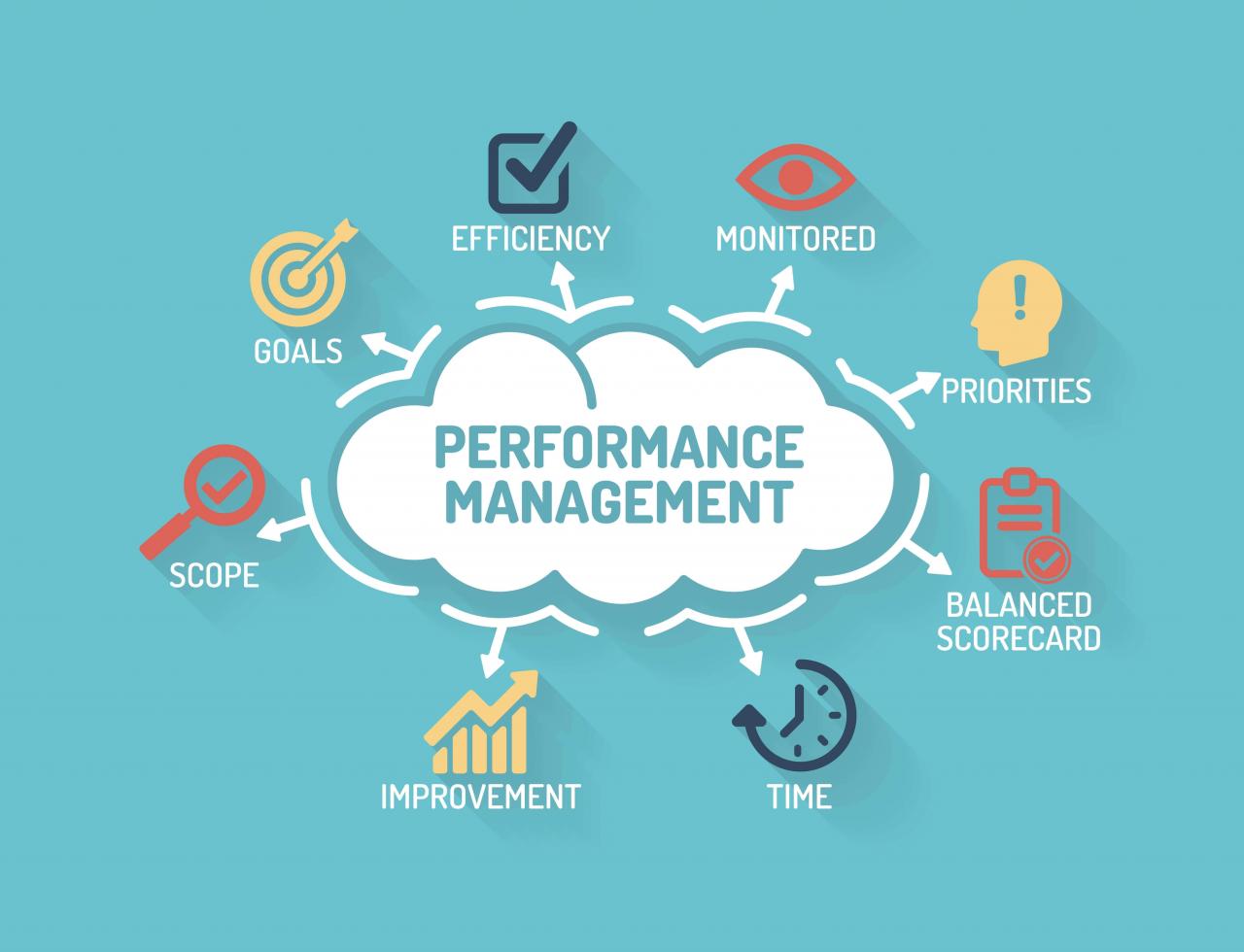Purpose and Objectives
Components of an effective performance management system – An effective performance management system serves the primary purpose of enhancing organizational performance by aligning individual goals with the company’s strategic objectives. It provides a framework for setting clear expectations, monitoring progress, providing feedback, and rewarding accomplishments.
Components of an effective performance management system include setting clear goals, providing regular feedback, and rewarding good performance. As such, entrepreneurs who excel at performance management are likely to be successful managers. To explore this further, read can an entrepreneur be a manager.
Moreover, by implementing performance management best practices, entrepreneurs can create a more engaged and productive workforce, which is essential for business success.
Specific objectives of an effective system include:
- Improve employee performance and productivity
- Enhance employee engagement and motivation
- Identify and develop employee strengths and areas for improvement
- Promote fair and equitable performance evaluations
- Align individual goals with organizational objectives
Key Components
An effective performance management system comprises several essential components:
- Clear Performance Expectations:Specific, measurable, achievable, relevant, and time-bound (SMART) goals and objectives that employees are expected to meet.
- Performance Monitoring and Measurement:Regular tracking of employee performance using objective metrics and assessments.
- Performance Feedback and Coaching:Constructive feedback provided to employees on their performance, along with guidance and support to improve.
- Performance Development and Improvement:Identification of areas for improvement and implementation of training and development plans to enhance employee performance.
- Performance Rewards and Recognition:Acknowledgment and compensation for high performance, fostering motivation and employee engagement.
- Performance Documentation and Communication:Accurate and comprehensive records of performance expectations, feedback, and outcomes, ensuring transparency and accountability.
Performance Planning

Effective performance planning involves establishing clear and specific performance expectations that align with organizational goals. This includes:
- Setting SMART goals and objectives
- Communicating expectations to employees
- Involving employees in the planning process
- Providing resources and support to achieve goals
Performance Monitoring and Measurement, Components of an effective performance management system
Performance monitoring and measurement track employee progress towards goals and objectives. This involves:
- Regular performance reviews
- Using objective metrics and assessments
- Providing feedback on performance
- Identifying areas for improvement
Last Recap
In conclusion, components of an effective performance management system are the cornerstone of organizational success. By embracing these components, organizations can create a work environment where employees are motivated, engaged, and empowered to achieve their full potential. Ultimately, a well-designed performance management system is not just a tool for evaluating performance; it is a catalyst for driving growth, innovation, and exceptional business outcomes.
While the components of an effective performance management system vary, they typically include goal setting, regular feedback, and development planning. Change management, often seen as an unstructured process change management is an unstructured , can benefit from the structure and discipline of a performance management system.
By aligning change initiatives with organizational goals and providing regular feedback on progress, performance management can help ensure that change is successful and sustainable.
Top FAQs: Components Of An Effective Performance Management System
What is the primary purpose of an effective performance management system?
Effective performance management systems consist of clear goals, regular feedback, and development opportunities. These elements are crucial for managing an ageing workforce, which faces unique challenges such as skill obsolescence and reduced physical capabilities. By incorporating strategies that address these challenges, organizations can ensure that older workers remain engaged and productive, contributing to the overall success of the company.
The primary purpose of an effective performance management system is to improve individual and organizational performance by setting clear expectations, providing regular feedback, and recognizing and rewarding high performance.
A robust performance management system encompasses regular feedback, clear goals, and performance assessments. To effectively implement these components, managers must possess assertive qualities. Assertive managers can confidently communicate expectations, provide constructive criticism, and foster open dialogue, creating a positive and productive work environment that supports ongoing performance improvement.
What are the key components of an effective performance management system?
An effective performance management system consists of several components, including goal setting, performance evaluation, and feedback. In the context of financial transactions, embedded computers play a crucial role in managing these transactions securely and efficiently. By integrating these components into a comprehensive performance management system, organizations can enhance the accuracy, transparency, and effectiveness of their financial operations.
The key components of an effective performance management system include performance planning, performance monitoring and measurement, performance feedback and coaching, performance development and improvement, performance rewards and recognition, and performance documentation and communication.
Components of an effective performance management system include clear goals, regular feedback, and opportunities for professional development. If you’re contributing to an IRA, you may be wondering can you deduct investment management fees. The answer is yes, but there are some rules you need to follow.
Back to the components of an effective performance management system, it’s important to remember that it’s an ongoing process that should be tailored to the specific needs of your organization.
How can performance management systems help organizations achieve their goals?
Performance management systems help organizations achieve their goals by aligning individual performance with organizational objectives, providing a framework for continuous improvement, and motivating employees to perform at their best.
Components of an effective performance management system include clear goals, regular feedback, and opportunities for development. Empowerment-based case management, as discussed in case management from an empowerment perspective , can enhance these components by fostering self-reliance and motivation among employees, leading to improved performance outcomes.
Effective performance management systems share components with effective management information systems, such as accuracy, reliability, and timeliness. Characteristics of an effective management information system include its ability to provide relevant, comprehensive, and accessible data to decision-makers. These shared characteristics contribute to the success of both systems by ensuring that performance data is accurate, reliable, and available when needed for informed decision-making.